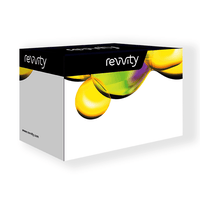Background
Lysosomal storage disorders develop as a result of an enzyme deficiency or malfunction that causes cell waste to build up within the cell instead of being excreted. There are approximately 50 known LSDs, each caused by a unique gene mutation which leads to a disease-specific enzyme that is deficient or malfunctioning. The stored cellular waste is also disease-specific, which helps in diagnosing the particular LSD. Almost all LSDs are inherited in an autosomal recessive fashion; one exception is Fabry Disease, which follows X-linked recessive inheritance. Each LSD has its own incidence rate, but as a group, LSDs occur in 1:5,000 to 1:10,000 births. Early detection and diagnosis are paramount to ensure timely intervention before irreversible symptoms occur.
Clinical Diagnosis
There are a wide range of neurologic and non-neurologic clinical symptoms. The onset of symptoms can occur from infancy to adulthood. Some disorders are not known to have neurologic features, while others include a wide range of neurologic symptoms, which may or may not include other visible physical characteristics. Pre-symptomatic treatment of LSDs known to have neurological symptoms is very important, as damage from these symptoms is irreversible.
Testing
The most common LSDs are diagnosed by measuring the activity of the lysosomal enzyme. The malfunctioning of this enzyme leads to the accumulation of its substrate within the lysosomes. Such lysosomal enzymes are e.g. acid-β-glucocerebrosidase (ABG), acid-sphingomyelinase (ASM), acid‑α‑glucosidase (GAA), β‑galactocerebrosidase (GALC), α-galactosidase A (GLA) and α-L-iduronidase (IDUA) where their activities may aid in the diagnosis of Gaucher Disease, Niemann-Pick A/B Disease, Pompe Disease, Krabbe Disease, Fabry Disease, and MPS I Disease, respectively.
Enzyme acitivities can be measured from dried blood spots (DBS) using tandem mass spectrometry or fluorescence based assays. Tandem mass spectrometry-based assays allow simultaneous detection of multiple enzymes’ activities whereas fluorescence-based assays are used to measure individual enzyme’s activities.
Treatment
Treatment for LSDs mainly involves treating the symptoms, not the disorder. There is no known cure for LSDs at this time, but emerging therapies are constantly being developed. Enzyme replacement therapy (ERT) is most effective in treating non-neurologic symptoms in diseases such as Gaucher, Fabry, MPS-I, and Pompe Disease. Hematopoietic stem cell transplantation (HSCT), using either bone marrow or cord blood to provide healthy stem cells that can produce the needed enzyme, is useful in treating diseases with neurologic symptoms, such as Krabbe, Gaucher Type II and MPS-I. Gene therapy has limited availability for some disorders, though mostly available as a part of clinical trials.
Inheritance
LSDs comprise a heterogeneous group of nearly 50 disorders that are caused by genetic defects resulting in the dysfunction, deficiency or absence of a lysosomal enzyme. Although each disorder is rare, LSDs as a group have a frequency of 1 in 7,000-8,000 live births.





























